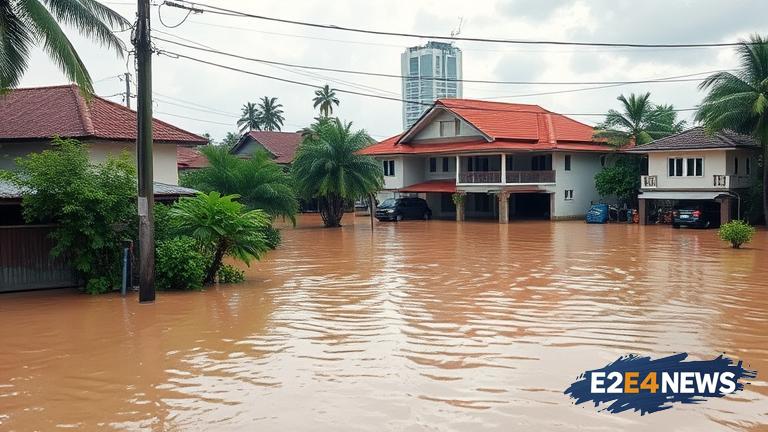The recent floods in Malaysia have brought attention to the country’s disaster management and mitigation measures. The government has been criticized for its slow response to the floods, which have affected thousands of people. Many have called for improved measures to be put in place to prevent such disasters from happening in the future. The floods have caused widespread damage and disruption, with many homes and businesses affected. The government has been accused of being unprepared for the floods, despite warnings from meteorologists. The opposition has called for the government to take responsibility for its handling of the floods. The government has announced plans to provide aid to those affected, but many are skeptical about the effectiveness of these measures. The floods have also highlighted the issue of climate change, with many calling for greater action to be taken to reduce the country’s carbon footprint. The government has been criticized for its lack of investment in flood mitigation measures, such as flood defenses and drainage systems. The opposition has called for a review of the country’s disaster management plan, to ensure that it is effective and able to respond to such disasters. The government has announced plans to conduct a review of its disaster management plan, but many are skeptical about the effectiveness of this review. The floods have also had a significant impact on the country’s economy, with many businesses affected. The government has announced plans to provide financial assistance to those affected, but many are concerned about the long-term impact of the floods on the economy. The floods have also highlighted the issue of poverty, with many of those affected being from low-income backgrounds. The government has been criticized for its lack of support for these communities, with many calling for greater investment in social welfare programs. The opposition has called for the government to take a more proactive approach to addressing the root causes of poverty, rather than just providing short-term aid. The floods have also brought attention to the issue of corruption, with many accusing the government of corruption and cronyism in its handling of the floods. The government has denied these allegations, but many are skeptical about its claims. The floods have also highlighted the importance of transparency and accountability in government, with many calling for greater transparency in the government’s handling of the floods. The government has announced plans to increase transparency, but many are concerned about the effectiveness of these measures. The floods have also brought attention to the issue of environmental protection, with many calling for greater action to be taken to protect the environment. The government has been criticized for its lack of investment in environmental protection, with many accusing it of prioritizing economic growth over environmental protection. The opposition has called for the government to take a more balanced approach to economic growth and environmental protection. The floods have also highlighted the importance of community resilience, with many calling for greater investment in community-based initiatives to build resilience to disasters. The government has announced plans to increase investment in community-based initiatives, but many are concerned about the effectiveness of these measures.





